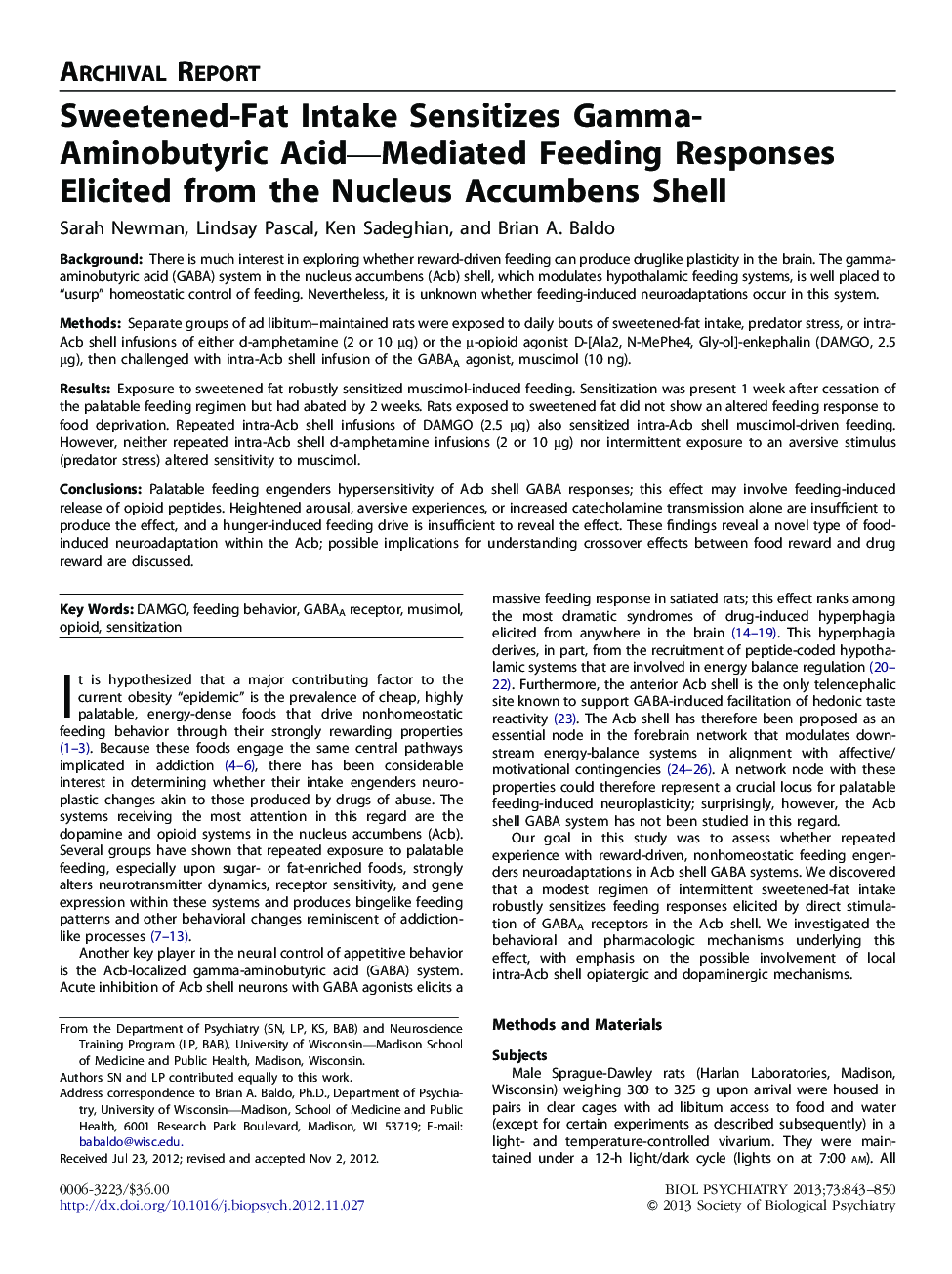| کد مقاله | کد نشریه | سال انتشار | مقاله انگلیسی | نسخه تمام متن |
|---|---|---|---|---|
| 6227593 | 1276462 | 2013 | 8 صفحه PDF | دانلود رایگان |

BackgroundThere is much interest in exploring whether reward-driven feeding can produce druglike plasticity in the brain. The gamma-aminobutyric acid (GABA) system in the nucleus accumbens (Acb) shell, which modulates hypothalamic feeding systems, is well placed to “usurp” homeostatic control of feeding. Nevertheless, it is unknown whether feeding-induced neuroadaptations occur in this system.MethodsSeparate groups of ad libitum-maintained rats were exposed to daily bouts of sweetened-fat intake, predator stress, or intra-Acb shell infusions of either d-amphetamine (2 or 10 μg) or the μ-opioid agonist D-[Ala2, N-MePhe4, Gly-ol]-enkephalin (DAMGO, 2.5 μg), then challenged with intra-Acb shell infusion of the GABAA agonist, muscimol (10 ng).ResultsExposure to sweetened fat robustly sensitized muscimol-induced feeding. Sensitization was present 1 week after cessation of the palatable feeding regimen but had abated by 2 weeks. Rats exposed to sweetened fat did not show an altered feeding response to food deprivation. Repeated intra-Acb shell infusions of DAMGO (2.5 μg) also sensitized intra-Acb shell muscimol-driven feeding. However, neither repeated intra-Acb shell d-amphetamine infusions (2 or 10 μg) nor intermittent exposure to an aversive stimulus (predator stress) altered sensitivity to muscimol.ConclusionsPalatable feeding engenders hypersensitivity of Acb shell GABA responses; this effect may involve feeding-induced release of opioid peptides. Heightened arousal, aversive experiences, or increased catecholamine transmission alone are insufficient to produce the effect, and a hunger-induced feeding drive is insufficient to reveal the effect. These findings reveal a novel type of food-induced neuroadaptation within the Acb; possible implications for understanding crossover effects between food reward and drug reward are discussed.
Journal: Biological Psychiatry - Volume 73, Issue 9, 1 May 2013, Pages 843-850